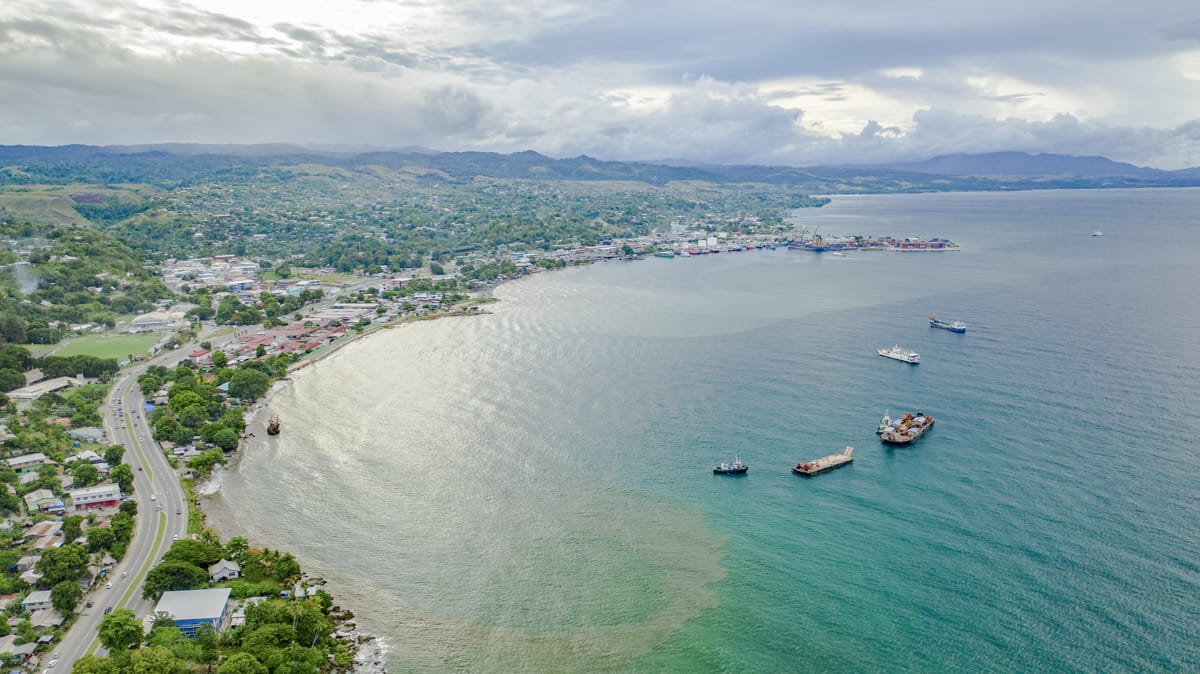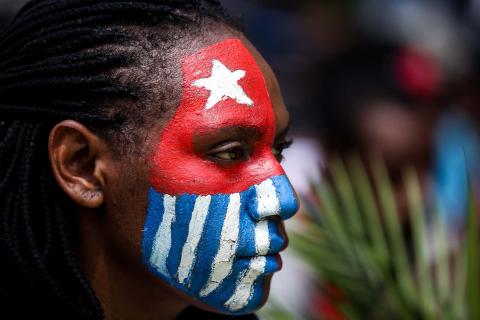For outsiders looking in, the Pacific might appear the focus of intense geopolitical competition. But for Pacific Island communities themselves, electoral results for decades make it clear that local issues are what counts. And understanding local governance in Melanesia increasingly requires attention to the role of “long-range leaders”.
Long-range leaders are distinct from the leaders that typically feature in handshaking photo-ops with foreign dignitaries. Instead, these long-range leaders are elite village members living outside their community, typically in larger towns or cities. They may be politicians, businesspeople, or senior bureaucrats, with leadership claims stemming from birthright, success within their village, or status gained through education or employment.
Recent fieldwork in Solomon Islands and PNG highlighted for us the profound influence of these leaders. Like many things, once you begin to notice them, you see their influence everywhere.
In downtown Honiara we lunched with a local colleague who was constantly fielding calls and texts. The issue? Community members were urgently seeking his counsel as a high-ranking customary chief regarding a wayward youth who had run amuck on his home island. Somehow, he was expertly navigating micro-level village politics at long-range, whilst simultaneously operating in his professional urban role.
There is a clear need for further research in this important yet underexplored area, to strengthen understanding of Pacific communities, and, in a foreign policy sense, how to engage with them.
We’ve encountered individuals who fund weapon purchases and later contribute to the compensation payments required for peace-making.
These long-range leaders have the potential to do both good and harm. Metaphors can be helpful for understanding their role – although no single metaphor can capture the complexity of the relationships. Like with the gravitational pull of celestial bodies such as the sun or moon influencing tides and life cycles on Earth, the presence and actions of long-range leaders are similarly felt in the Pacific. Though distant and often invisible to outsiders, they can significantly affect governance and decision-making within their home communities.
However, this metaphor has its limits. Rather than a constant, predictable pull, relationships between long-range leaders and their communities are subject to change and depend on context.

Long-range leaders can be benevolent, contributing economically through personal donations, facilitating projects, or brokering access to external funding. This can happen continuously through remittances or periodically for specific needs such as funerals, marriages, or community projects. Their education or professional skills often play a crucial role in community governance, such as when they are called upon to sit on contentious school boards or help draft community bylaws.
Long-range leaders in Melanesia are predominantly male, although some are female. A few of these have successfully softened patriarchal norms by providing alternative role models and advocating for greater freedom for younger women. These positive aspects might be better understood by what Suzanne Simard calls “mother trees” – older, larger trees that provide essential nutrients and support to younger saplings through underground networks.
Yet long-range leaders can also exert a malevolent influence, more akin to long-acting poison, where the connection between cause and effect is delayed but potent, nonetheless. These leaders can fuel conflict and division within their home communities, often for political gain during elections or for economic benefits through land grabs or dubious deals with foreign logging companies. In extreme cases, this involves funding weapons, ammunition, and mercenaries.
Male long-range leaders, eager to assert their masculinity, can also obstruct the rise of local women leaders by influencing the selection of leadership positions in community committees or hindering female candidates in provincial and national elections. Even without malicious intent, long-range leaders can have negative influence. They can destabilise community governance by fostering dependence on external decision-makers, leading to learned helplessness where communities struggle to make decisions without their signoff.
Technology makes leaders more immediately accessible – ready to advise on handling of a misbehaving youth, negotiating with a resource extraction project, or providing funds for emergencies at a moment’s notice.
In reality, long-range leaders often embody both benevolent and malevolent traits. We’ve encountered individuals who fund weapon purchases and later contribute to the compensation payments required for peace-making.
It’s important to acknowledge that communities exert significant pressure on their long-range leaders as well. Perhaps a better metaphor is that of a conductor who orchestrates and coordinates community actions from a distance, while also being influenced by the feedback from the musicians. This dynamic is evident at times in the relationship between MPs and their constituents in Melanesia, exacerbated by the rise of constituency development funds. For example, Solomon Islands MP Rick Hou laments “People call their MP in the middle of the night, they call early in the morning; they call anytime … They call for assistance with funeral expenses of dead relatives, assistance with school fees, to attend a wedding, to follow up on their project application, to attend a meeting on the local hospital project or just to ask for ‘top up.’”
Better perhaps to liken of the nature of the connection between long-range leaders and their communities to that of a television remote control. This metaphor highlights the role technology plays in mediating these relationships. Leaders are constantly on their phones, alert for incoming WhatsApp messages, scouring Facebook for tags, and checking for posts they may have missed. The rise of mobile phones has significantly affected the relationship between long-range leaders and their communities. This technology makes leaders more immediately accessible – ready to advise on handling of a misbehaving youth, negotiating with a resource extraction project, or providing funds for emergencies at a moment’s notice. While this provides valuable external perspectives, it can also diminish the community’s autonomy.
One thing is certain: understanding community-level governance in Melanesia requires a deep appreciation of the role played by long-range leaders.


